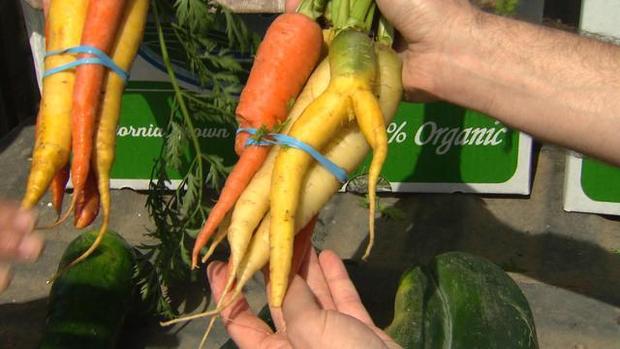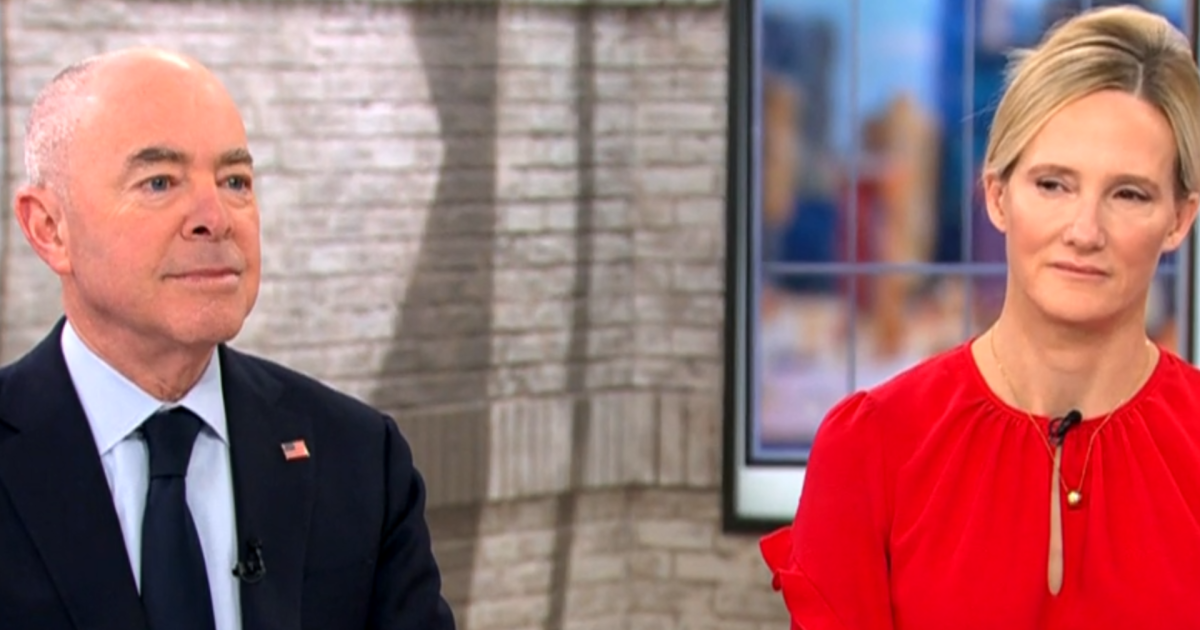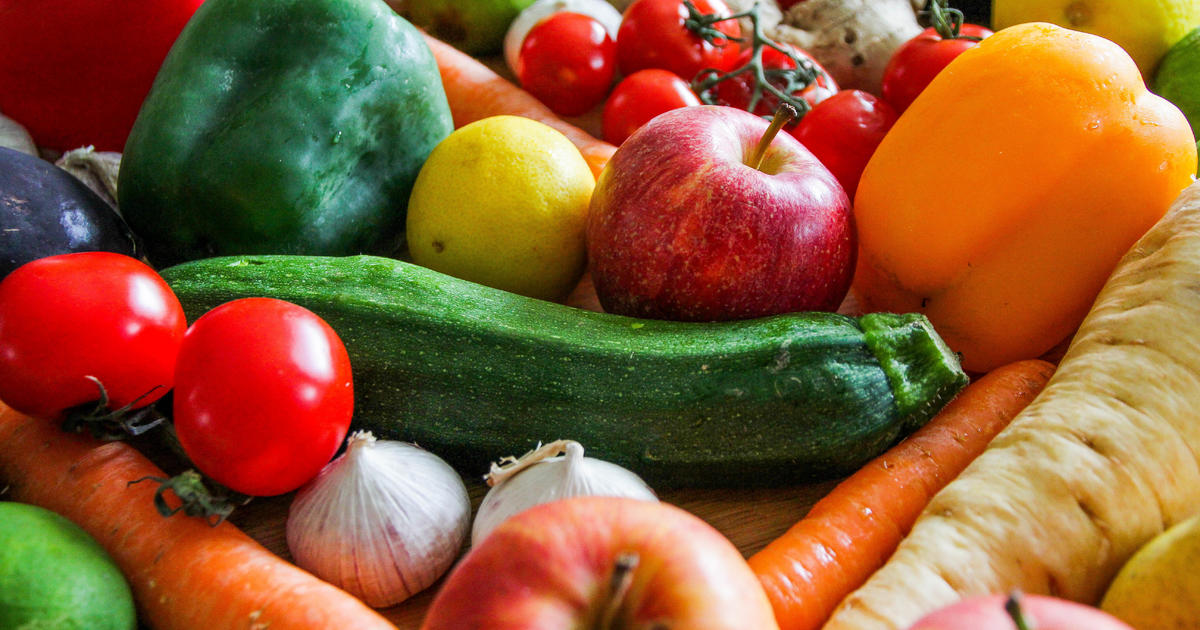Is "ugly produce" the key to our food waste problem?
Juan Gonzalez works in the heart of California farm country where about 90% of America's cauliflower is harvested every year. Until recent years, he says, his farms were also the site of a staggering amount of food waste: 10 million pounds per year.
That's because so many fruits and vegetables never make it to store shelves. Why? They simply look a little different.
"Everybody knows cauliflower as being white. But in order to keep organic cauliflower white you got to come in, break the leaves or tie the leaves. Keep the sun from hitting this head of cauliflower," Gonzalez explained to CBS News' Kenneth Craig.
If the cauliflower is a little too yellow on the top, grocery stores won't take it.
USDA guidelines separate fruits and vegetables into grades based on things like size and color. Large volume retailers, including supermarkets, often follow those strict beauty standards. That's led to 10 million tons of cosmetically imperfect or unharvested food being lost each year.
But one man's trash has become another man's treasure for Ben Chesler, who saw "imperfect produce" as the perfect recipe and name for a new business model.
"The goal was really to fix a part of the food system," Chesler said. "Starting with produce and then eventually moving into the wider food system, we could solve the environmental impact of all the food going to waste, we could make food more affordable for people and we could start to take a small bite out of this whole problem of food deserts where we could actually deliver healthy produce to people for more affordable than the grocery store."
His company is an offshoot of the Food Recovery Network, a student-led movement he started with a friend in college.
"We noticed there was a huge amount of food going to waste in our dining halls from these giant buffets and at the same time there was hunger in the community, and so we started a student organization to take that food from the dining halls and donate it to homeless shelters, meals sites in the community. It turned into actually the largest student movement against hunger," Chesler said.
In four years, the doorstep delivery service has expanded to more than 30 markets and more than 200,000 customers, including Caroline Devane's home in Cambridge, Massachusetts.
"In my experience, the food has been just as good as grocery store quality when I look for the imperfections I'm like, 'Is it really imperfect?' It seems just fine and it's a great price," Devane said.
The mother of two said it's not only saving her money, but also trips to the store.
"I's nice to think that there's a very small, consumer impact I can make just by choosing these vegetables, instead of choosing the very beautiful vegetables at the grocery store," Devane said.
The ugly produce movement has grown into a competitive field with companies like Misfits Market and Hungry Harvest all fighting for a share. It's also ignited a debate, with skeptics pointing out that more than 80% of food waste each year comes from consumers at homes, businesses and restaurants.
"There's no silver bullet to any of these problems like food waste," Chesler said. "Six billion pounds of food never make it to a human mouth – that's in any form. That's after the food banks have taken produce. That's after the salsas, the juices and the jams."
On thousands of acres at Lakeside Organic Gardens, where Juan Gonzalez's team grows than 50 different vegetable varieties, the rescue efforts have been a game changer.
"Profitability has gone up. Our employee's production numbers have gone up. The field's harvest numbers have gone up. Everything has gone up," Gonzalez said. "If we could turn all that around, California could pretty much end world hunger … that's how much product gets left behind."




